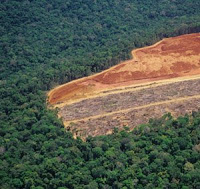Transcription:
Well, I’m going to tell you about the climate change factors and well, do you have any idea of which are these factors? Well, yes, and other ones. The climate change is the result of a great many factors such as plate tectonics, solar output, volcanism, oceans variability and human influences.
Plate tectonics. Plate movements implicated the intensification of the present ice age when the North and South American plates collided to form the Isthmus of Panama and slit away the Pacific and Atlantic Oceans. In fact, in the distant future plate tectonics will reposition continents, form oceans and build and tear down mountains.
Then, the solar output. The sun is the most important source of heat energy input to the climate system. And its output energy, which is converted to heat in the Earth’s surface, is an integral part of the Earth’s climate. Then, lesser amounts of energy are provided by the gravitational pull of the moon and geothermal energy.
Then, volcanism. Volcanism is the process of transporting materials from the Earth’s interior to the surface as part of a process by which the planet removes the excess of pressure and heat in its interior. A single eruption can actually affect climate. For example, the eruption of Mount Pinatubo in nineteen ninety-one affected substantially climate with global temperatures dropping by about zero point five degrees and ozone depletion being substantially increased.
Then, oceans variability. Many climate oscillations owe their existence at least in part to the different ways that heat can be kept in the oceans and the way it moves. Then… aah, one second. Oceans processes such as thermohaline circulations also play a key role in redistributing heat by carrying out a very slow and extremely deep movement of water, and a long-term redistribution of heat in the oceans.
Finally, and the most important factor for me, is the human influences. Human activity is probable the cause of rapid changes in world’s climate and environment in the past several decades. And one of most concern factors is the increase in carbon dioxide levels due to emissions from fossil fuels combustions, followed by aerosols and cement manufactures. Other factors including land use, animals’ agriculture and deforestation are also concern as affecting climate.
Well now Cèlia is going to tell you about the greenhouse effect.
Observation of my oral presentation:
Presentation:
As a resource, we used a power point and I think that it was really attractive and visual because we put on it lots of photos related on what we were talking so people could understand it better. However, I jus related it to what I was saying at the beginning and I might have referred to it more than I did.
Body language and eye contact:
I looked at the audience most of the time except for when I had to show something from the screen.
I had my notes on my hands and I didn’t look them excepting one time ‘cause I was quite nervous and I just forgot what was coming. Even though, I remembered immediately what I had to say.
I did lots of gestures with my hands, not exactly to hold the audience attention, just because I was quite nervous and I usually do it.
Structure:
I really didn’t structure the ideas in order of importance. I first did an introduction and after talked about the different climate factors, not in importance order, though.
I used some discourse markers to make it easier for the audience to situate, like then or finally. I think that I used quite a lot of times then, and maybe another discourse marker would have been better.
Content:
All the information I introduced to the audience was new and interesting because I think that the climate change is an important issue but people is not very concerned about it.
I looked up for information in the Internet (Wikipedia and other webs) because I wanted to explain more things than the ones I knew.
My information was original and quite detailed. I used some technical and scientific vocabulary related with the topic.
Language:
I checked my grammar at home, but sometimes it’s difficult to say it perfectly when you are there. However. I think that my grammar was good in the oral presentation excepting a sentence which I have corrected in the transcription.
I looked up the dictionary many times to use new words or synonyms (e.g.).
I didn’t use many linkers, just and (and maybe too many times!). I also used some fillers like well.
Pronunciation & Intonations:
I didn’t know how to pronounce all the words, and I checked them on an online dictionary of pronunciation (e.g. collided, combustion, thermohaline, redistribution…).
I think that my tone of voice didn’t change a lot from the beginning to the end of the presentation. However, I was more confident at the beginning and in the end than in the middle.
I speeded in a fluid continuum excepting once I had to look at my notes. I studied so I knew what I had to say and this caused more fluency in me, there are the nerves,though.
Self-evaluation:
If I were the teacher I would get between an 8 and an 8.5.
Here you've got the power point and the video of our oral presentation.


